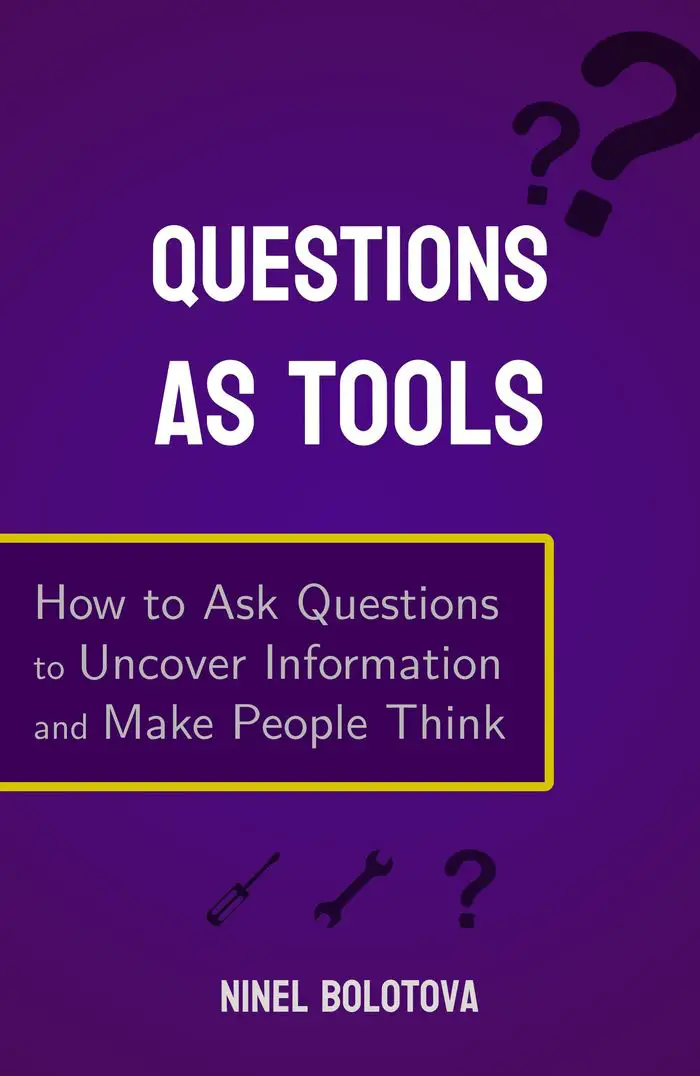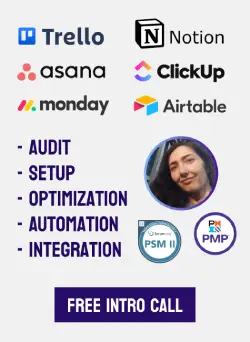Explaining Your Online, Remote or Tech Job to Family and Friends
When you tell people what your job is, do you usually get nods of recognition or baffled looks?
In the modern world, there are roles and occupations that didn’t exist a few decades ago or got a new spin as more and more people switched to working remotely.
Or perhaps you have a profession that has been around for a while but doesn’t immediately bring an image to mind, like “a doctor” or “a construction worker” would.
In this article, we’ll talk about the tactics for explaining your occupation to family and acquaintances, and the issues you can run into when talking about your online or tech job.
A few specific examples of explaining your job to friends and family – click to jump to a chapter:
If you feel that remote work gets overwhelming sometimes, check out the tips for maintaining a work-life balance when working from home.

photo by @pavel-danilyuk on Pexels
General principles of explaining your profession
If you talk to people who know nothing about your specialization and want them to understand your occupation better, here are a few tips:
- Explain your “why”. What is the endgame? Your clients, the users of the product you help create – how do they benefit from your work? Whom does your work influence, and how?
If you shift your perspective from what you specifically do to how it plays into the bigger picture, it’ll be easier for outsiders to understand your role. - Tell a story about your work. You can list all your job responsibilities and even show your task backlog, but it doesn’t paint a holistic picture of what you’re doing. Stories are great for engaging people. Describe a specific case or a recent win.
- Imagine you’re explaining things to an alien. The classic variation is “explain to a 5-year-old”, but 5-year-olds are quite tech-savvy these days.
Imagine that you’re talking to someone advanced but with a different way of thinking. Even if they understand what you’re saying, they might still not “get” it.
When do people ask you about your job?
But do you need – or want – to explain anything at all, beyond a brief description?
There are various circumstances when people ask what your job is, but let’s review two opposite scenarios. Which one is more aligned with your own situation?
Small talk: asking out of polite curiosity
When you meet someone new and they ask what you do, they usually expect a short answer they could put a mental checkmark on and move on.
If there’s some confusion, after a couple of lines of explanation they either understand it or lose interest. Their reaction is something like:
“Umm, ok… I think I get it (not really), but whatever”.
You might circle back to the subject later, if you become closer friends and share some work stories. Or they’ll just develop a deeper interest in what their friend is up to.
However, if you love your job, you might want to talk about it even if they don’t explicitly ask for details – to spread awareness and have your friends, family or new acquaintances understand you better.

A concerned relative: wondering if you should get “a real job”
On the other end of the spectrum, there’s a person who knows you well and is very invested. Usually, it’s your mother or another relative who’s a generation older than you.
And they’re worried because what you’re doing doesn’t gel well with their vision of what a “normal” job is.
Maybe they genuinely want to understand you, or maybe they’re judgemental despite your explanations.
If their reaction bothers you, here are some strategies to deal with the lack of support from family.
In familial relationships, it’s important to maintain respectful, healthy boundaries.
Whoever you talk to, remember: you don’t owe an explanation to anyone.
You don’t need to prove that your job is “worthy” or “real”.
If their questions tap into your own insecurities, instead of justifying things to them, focus on getting rid of impostor syndrome or coming up with a strategy to change your work situation.

photo by @rdne on Pexels
How to explain who Scrum Master is to people who don’t know about Scrum
Even for some of the people who practice Agile methodologies, the Scrum Master role is veiled in mystery or misinterpreted. So, explaining it in a few sentences to someone who doesn’t know much about product development seems like a tough task.
However, here’s what you could start with…
Scrum is a set of principles that help with developing solutions to complex problems with a series of iterations, each improving and building upon the previous one.
It’s like drawing a sketch, showing it to the viewers, then adding, erasing, and correcting some things based on their feedback, eventually coming up with the full picture. As opposed to drawing a detailed picture and correcting over the layers of paint.
Scrum Master is responsible for those core Scrum principles to be observed.
Scrum Master doesn’t tell the team what to do, but they do everything in their power to help people be the most productive and improve the team’s performance.
For example, an issue I recently helped resolve is…
Materials related to the Scrum Master role:
You can learn more about Scrum and its key roles and principles in my detailed guide to preparing for the Professional Scrum Master certification.
Also, consider a few points to see if the Scrum Master role is a good fit for you.
Explaining your remote Project Manager role to your grandmother
Project management must be the oldest occupation on this list. PMI held its first Project Management Professional exam in 1984, and the origins of the PRINCE2 project management method date back to 1989.
So, everyone regardless of their age has heard about it, and you’re unlikely to get puzzled looks by mentioning that you’re a project manager.
Being a remote PM, however, might raise some questions.
Some of it might have to do with an outdated perception of a project manager as a controlling figure who keeps a close eye on their employees. How can you control people if you barely even see them?
Project management approaches have significantly changed in the past couple of decades. Project Management Institute regularly updates its exams to reflect modern PM practices.
In their recent iterations, PMI’s most famous PMP and the entry-level CAPM exams feature many questions that require the knowledge of Agile methodologies and an Agile Mindset.
What you can say about your remote project manager role:
My remote project manager job isn’t different from a “traditional” PM working at the office. My duty is to plan, organize, communicate, resolve issues, and so on, to bring the project to its successful completion.
I use task management software to organize the processes and collaborate. Tools help a lot these days. But soft skills – being a great communicator, in particular – are especially important when you work remotely.
Related: Are you a great project manager?

photo by @pnw-prod on Pexels
Breaking down your Product Manager or Product Owner role to your friends
Product owner isn’t a job title, but a Scrum-specific accountability. You can read more about it in my Professional Scrum Product Owner exam preparation guide.
Product management, however, has been around for a while but is still often confused with project management. Here’s how you can explain the difference:
Project managers focus on planning and executing the steps to achieve a certain goal. It could be anything: organizing an event, constructing a bridge, or creating a piece of software.
A project has a set duration. For a project manager, it’s considered a success if a project is delivered on time and within budget.
Product managers focus on, well, a product: an item, a service, something that would be presented to the users. They analyze the market, talk to the end consumers before and during the development, and modify the product based on consumer needs.
A product manager’s success is defined by the success of their product. A successful product, like an iPhone, can live on for many years in various iterations.
Related: Best product management books.

photo by @eren-li on Pexels
Explaining your developer or another IT job to non-tech people
There are many jobs under the IT umbrella – web, software, and game developers, system architects, data scientists, and so on.
But even once you explain your job to them using the principles outlined in the beginning, there might still be an issue of misinterpretation.
“You’re good with tech, right? Can you please fix my toaster?”
It might seem that fixing appliances has nothing to do with software development, but you’re well-versed in reading documentation and debugging things, so there’s some logic there.
But more likely, the logic is “tech is magic”, so if you can do something technical, you’re “in the know” and thus you could solve problems related to technology in one way or another.
So, in addition to explaining what your tech job is, you could also mention what it is NOT:
- NO, I can’t single-handedly code any website or game you’ve heard of – those are big titles that require teams of dozens of people. I do contribute to similar projects.
- YES, I can give you some general web and software advice to point your own research in the right direction.
- But NO, I won’t create a website for you, or spend hours debugging and reinstalling the software on your computer.
- NO, I can’t hack anyone’s account – and even if I can, I won’t do it if you just randomly ask me.
Related: Renewal costs of top cybersecurity certifications.
Blogger, YouTuber, or another kind of content creator – how to explain to your relatives
There are different stereotypes surrounding content creators. From “Oh, great! You’re having fun and earning good money!” to “What are you even doing? Does anyone pay for this?”.
Regular content creation requires strategy and discipline.
It takes courage to put your content out there. Success doesn’t come overnight, so to see the results, you need willpower, patience, and a great desire to learn.
Creators monetize their content with ads, brand sponsorships, by selling digital products, linking to others’ products and earning affiliate commissions, and so on.
I could tell what my primary revenue method is, but no, I won’t disclose my income.
Related: Improving consistency to maintain your content schedule.

 Ninel Bolotova, PMP, is a workflow expert setting up and automating processes in ClickUp, Trello, Notion, Monday and other PM tools. She enjoys challenges related to process setup, automation and optimization.
Ninel Bolotova, PMP, is a workflow expert setting up and automating processes in ClickUp, Trello, Notion, Monday and other PM tools. She enjoys challenges related to process setup, automation and optimization.